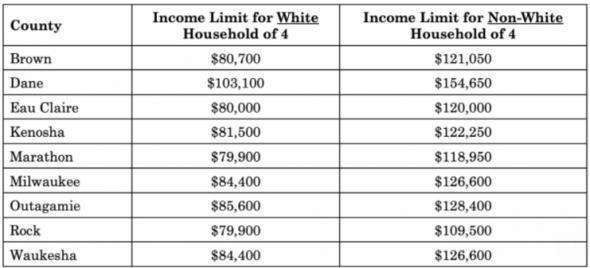WILL Urges Governor Evers to Abandon Race Discrimination in New Housing Assistance Program
State program to allocate housing grants based on race
The News: Attorneys at the Wisconsin Institute for Law & Liberty (WILL) issued a letter to Governor Tony Evers urging changes to the implementation of a federal housing assistance program administered by the state of Wisconsin. WILL is concerned that the “Wisconsin Help for Homeowners” program, a $92.7 million fund created by federal COVID-relief legislation, includes unconstitutional racial classifications that would provide housing grants with racial eligibility requirements. Race discrimination is illegal under the 14th Amendment and Article 1, Section 1 of the Wisconsin Constitution.
The Evers Administration has said that it will roll out this program in early 2022 but has not provided further details.
Background: On March 11, 2021, President Joe Biden signed the American Rescue Plan Act of 2021 (ARPA) containing $1.9 trillion in federal COVID-relief spending. Under Section 3206 of APRA, Wisconsin received $92.7 million to establish a Homeowner Assistance Fund. The “Wisconsin Help for Homeowners” program, or WHH, is administered by the Wisconsin Department of Administration (DOA) and will provide housing grants of up to $40,000 to owner-occupied households who have experienced a COVID-19 related financial hardship as long as they meet specific income requirements.
It is in the design and implementation of income requirements that the State of Wisconsin is introducing racial classifications. The federal legislation directs states to provide housing grants to homeowners “having incomes equal to or less than 100 percent of the area median income [AMI] for their household size.” But states can increase the income eligibility pool to 150% AMI for “social disadvantaged individuals.” “Socially disadvantaged individuals” is defined by the federal government to include only “Black Americans, Hispanic Americans, Native Americans, and Asian Americans and Pacific Islanders.”
Governor Evers’ administration chose to design the Wisconsin program with the expanded eligibility for the “socially disadvantaged,” which Wisconsin DOA officials noted in a draft report on the WHH means, “those whose householder is in any racial or ethnic group besides non-Hispanic/Latinx White.” More than 900,000 Wisconsin households would qualify for the expanded Wisconsin Help For Homeowners program if it was designed without racial classifications. Instead, just 60,979, or 6.6% of eligible households, will qualify based on their race.
These race classifications are illegal. Government policies that classify people by race are presumptively invalid under the 14th Amendment to the United States Constitution and Article 1, Section 1 of the Wisconsin Constitution. Courts may authorize the use of race when a government is attempting to remedy a past episode of intentional race discrimination that the government had a hand in, but such exceptions are exceedingly rare and the Wisconsin DOA has provided no evidence it is attempting to remedy any past episode of intentional race discrimination.
WILL is encouraging Governor Evers to postpone the start of WHH pending a thorough legal review and revision of the program to remove any racial classifications. In 2021, WILL successfully challenged two APRA programs, both with provisions providing benefits based on race: the Restaurant Revitalization Fund, a $28.6 billion fund providing a preference to non-white restaurant owners, and the Farmer Loan Forgiveness Program, a $4 billion program designed to forgive loans to non-white farmers. Both programs were halted by injunctions sought by WILL in federal court.
More information about WILL’s Equality Under The Law Project can be found at DefendEquality.org. Homeowners who believe they have been the subject of race discrimination due to this new federal program can reach out to WILL attorneys at www.will-law.org/contact-a-
NOTE: This press release was submitted to Urban Milwaukee and was not written by an Urban Milwaukee writer. While it is believed to be reliable, Urban Milwaukee does not guarantee its accuracy or completeness.






















